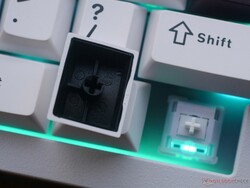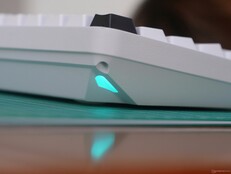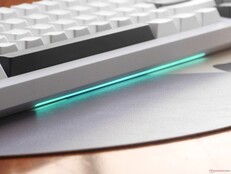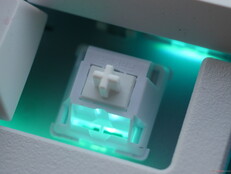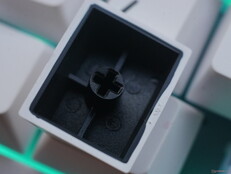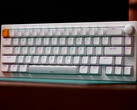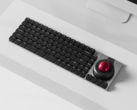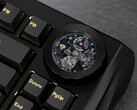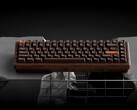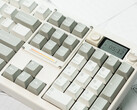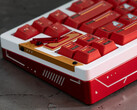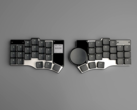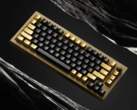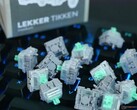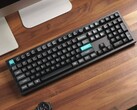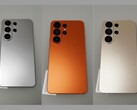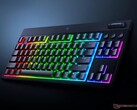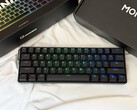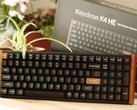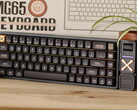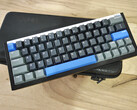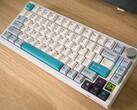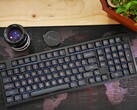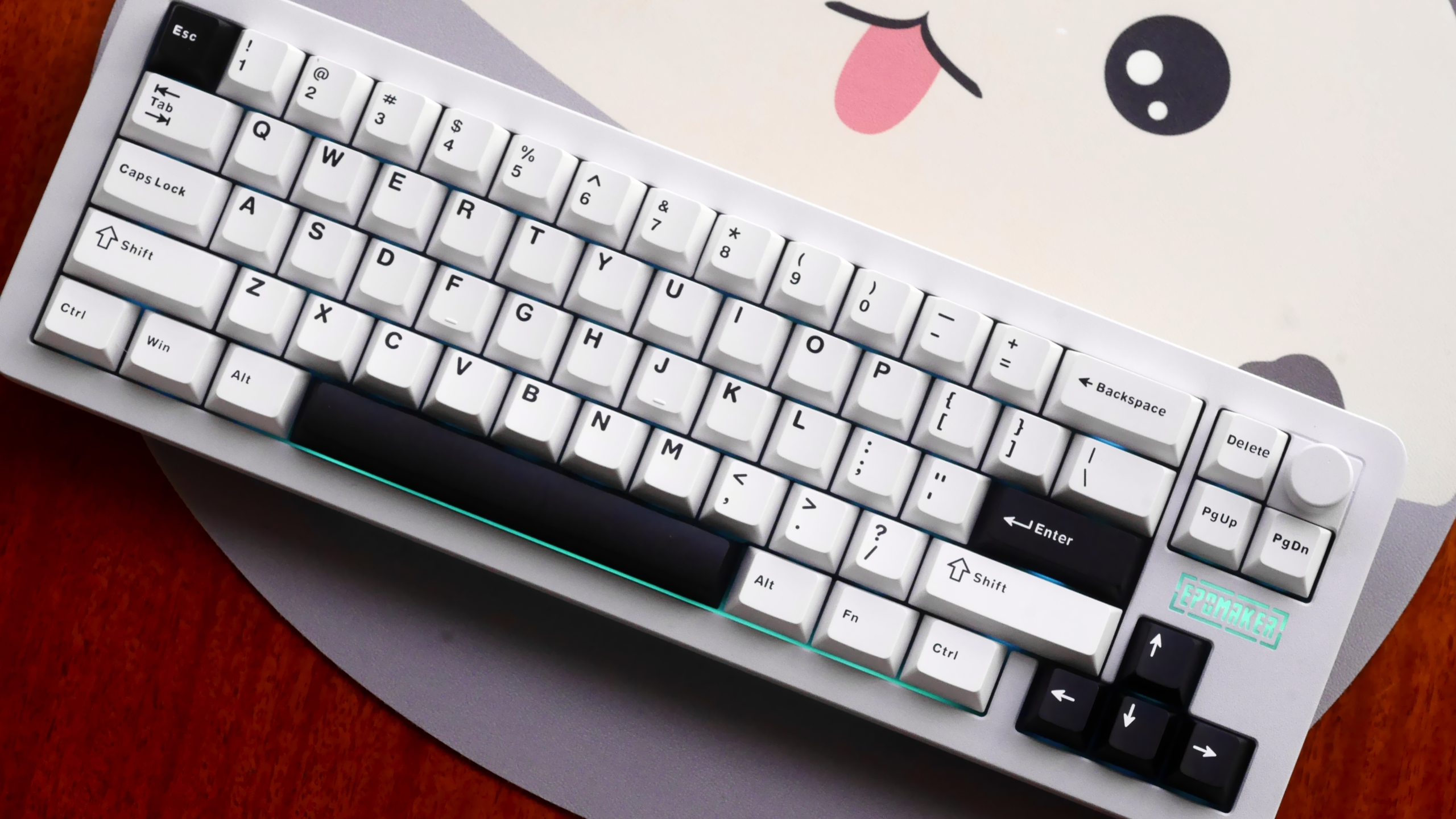
Affordable mechanical keyboard with unique design spoiled by questionable keycaps: Epomaker Galaxy68 review
Extra wide 65% keyboard.
The Epomaker Galaxy68 is an excellent wireless mechanical keyboard that comes in at an affordable $99, although the 65% form factor belies the keyboard's actual size. With wide bezels and an odd navigation cluster, the Galaxy68 is wide enough that I'm left wondering whether it'd be better as a TKL.Julian van der Merwe Published 🇫🇷 🇪🇸 ...
Verdict - Exceptional value mechanical keyboard, but those keycaps...
The Epomaker Galaxy68 delivers great build quality for the price, although the inconsistent and misaligned keycap legends are disappointing. It also has a host of convenience features and customisation options that make it a great choice for everyone from gamers to minimalist productivity users. Ergonomics are also a strong point, with a decently low front height for a wireless full-height mechanical keyboard. The compact design also allows for more mouse room and desk space. The inclusion of a customisable knob and QMK/VIA support are also massive productivity wins for the Galaxy68.
The biggest complaint we have about the Galaxy68 is that its design could be more compact, even without cutting features like the knob or its uniquely wide bezels. The Galaxy68 sacrifices the F row and a traditional navigation cluster, but the exploded design makes it easier to get used to coming from a larger keyboard.
Pros
Cons
Price and availability
The Epomaker Galaxy68 is available from Epomaker directly and on Amazon for $99.99 in both Black White and Black Green colourways. We tested the Feker Marble White switch version, but it is also available with Epomaker Wisteria Linear switches for a heavier actuation force.
When purchasing Epomaker keyboards, it's always advised to go through Amazon. Shipping times are usually shorter, and the return process is more streamlined.
The Epomaker Galaxy68 is a 68-key (65%) mechanical keyboard with Cherry profile double-shot PBT keycaps, a powder-coated aluminium case with gasket mounting, and a customisable volume knob. The Feker Marble White switches in our review unit have a lightweight actuation force, and the keyboard offers tri-mode connectivity.
Specifications
| Form factor and size | 68% ANSI US layout (68 keys, 1 knob), 346.3 × 112.7 mm, 20.8 mm front height |
| Typing angle | 7 degrees |
| Case material | Aluminium, powder coated |
| Weight | 1,250 g |
| Plate material and mounting style | Flex-cut PC, plate gasket mount |
| Connectivity | USB-C wired, Bluetooth 5.1 |
| Battery capacity | 6,000 mAh |
| PCB and switch style | Mechanical switch, 5-pin and 3-pin compatible |
| Default switch options | Feker Marble White (linear, 30 gf start force, 47 gf bottom-out, 3.5 mm travel) |
| Keycap material and profile | Double-shot PBT, non-shine-through, Cherry profile |
| Customisation | VIA web driver (requires uploading JSON file) |
| Backlight | South-facing per-key RGB, accent lighting, logo lighting |
| Polling rate | Up to 1 kHz, 125 Hz on Bluetooth |
Galaxy68 first impressions and build quality — mostly good with minor complaints
Build quality on the Galaxy68 is a standout, especially for the price. The aluminium case is thick and ping-free, and the powder coating has a consistent matte texture. Similarly, the keycaps are thick, with a pleasant texture. The massive silicone feet on the bottom of the keyboard isolate it from the desk handily, and the gasket mount does a good job isolating the PCB and switch plate from the case. The biggest build quality criticism we have is the keycap legend, which is somewhat wonky on some keys.
Included accessories:
- Braided USB-C-to-A cable
- USB-A 2.4 GHz dongle
- Keycap and switch puller
Compared to the num pad-touting Galaxy 100 we reviewed previously, and the rest of the Galaxy line-up, the Galaxy68 has a different aesthetic. Gone are the unique MDA-profile keycaps and the space-themed design flourishes, like the decorative acrylic antenna cover and case accent plate. Instead, we have a commonplace Cherry keycap profile and a plain aluminium case with some RGB accent lights on the back corners and bottom edge under the space bar.
While there are benefits to using Cherry profile keycaps, and the RGB accent lighting kind of gives the keyboard a spacey sci-fi look, it still feels a little less special than the Galaxy 100. Nevertheless, the thick bezels on the Galaxy68 give it presence on your desk, and the rounded corners set it apart from other similar mechanical keyboards. Those thick bezels and the unique 65% layout also mean that the Galaxy68 is about as wide as an average TKL — at around 6.5 mm narrower than the Keychron C1 Pro 8K we recently reviewed.
Galaxy68 customisation and daily use
Typing on the Galaxy68 is pleasant, thanks to the relatively low front height. Although the gasket mount helps with noise isolation, it doesn't do much to soften bottom-outs. The slightly matte texture on the PBT keycaps helps your fingers glide over the keys, even if you are prone to dragging your fingers from key to key.
The keycaps feel good to use, but the texture seems likely to wear off over time. It's easy to mar the keycap coating, even with just a finger nail. Fortunately, scratched or shiny keycaps can be easily replaced with a set for as little as $10–20 from Amazon.
Everyone has their own preferences when it comes to switch tactility and actuation force, but the Feker Marble White switches in our review unit all feel consistently lubricated, with no scratchiness throughout the stroke, and they feel and sound identical across the keyboard.
VIA compatibility is one of the highlights of the Galaxy68, allowing users to remap the entire keyboard including the programmable knob, which comes set to volume control (with a press to mute) by default. This proved especially useful for creating macros, which can even be assigned to the knob functions. The knob has positive notches and feels good to use, although there is a little bit of side-to-side wobble, and the gap between the bottom of the knob and the case is a little big.
Galaxy68 sound test and space bar issues
Design critiques aside, the biggest issue we had with the Galaxy68 during our review was its space bar stabilisers. While the space bar has a very clean, albeit somewhat hollow, sound profile out of the box, as soon as we took the keycap off and put it back on, the space bar stabilisers became very rattly. This is likely something that can be easily resolved with some additional lubrication, but it's annoying nonetheless.
Overall, the sound profile of the Galaxy68 is clean, with minimal complaints from an empirical standpoint. The rest of the stabilisers sound and feel good, with no noticeable ticking or rattling, and the Feker Marble White switches have a sound profile that leans to the higher-pitch "clacky" side of things. This is further emphasised by the flex-cut PC plate and the aluminium case. The sound is quite similar to that of the Wobkey Rainy75 and its HMX Violet switches, but not quite as loud. The Galaxy68 is still definitely on the louder side compared to many other pre-built mechanical keyboards.
Epomaker Galaxy68 battery life
We tested the battery drain of the Galaxy68 connected to 2.4 GHz with all the lighting on maximum brightness, and the keyboard managed around 18 hours of continuous use. That falls drastically short of Epomaker's 27-hour claims under the same conditions. Testing with the backlighting off and connected to Bluetooth, however, revealed a drain of less than 1% every three hours of use. This suggests that the Galaxy68 should get close enough to the 500-hour estimate.
Conclusion
The Epomaker Galaxy68 is a great introduction to the world of mechanical keyboards. The software customisation and compatibility with standard MX-style switches and keycaps makes it a great entry-level keyboard. While it offers a lot of customisation opportunities, with a case full of noise damping materials, it also delivers a solid out-of-the-box experience. The lacklustre keycap legend kind of ruins what is otherwise a great value mechanical keyboard.
Transparency
The selection of devices to be reviewed is made by our editorial team. The test sample was given to the author by the manufacturer free of charge for the purposes of review. There was no third-party influence on this review, nor did the manufacturer receive a copy of this review before publication. There was no obligation to publish this review. As an independent media company, Notebookcheck is not subjected to the authority of manufacturers, retailers or publishers.


